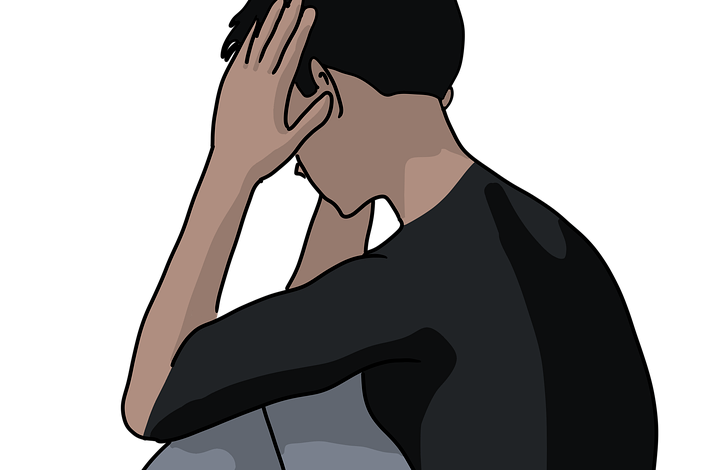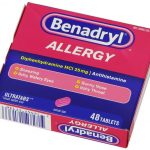How To Stop Effexor Withdrawal Symptoms

Effexor withdrawal refers to the symptoms that can occur when discontinuing or reducing the dosage of the antidepressant medication called Effexor (venlafaxine). Effexor belongs to a class of medications known as selective serotonin and norepinephrine reuptake inhibitors (SNRIs), which are commonly used to treat depression, anxiety, and other mood disorders.
It’s important to note that withdrawal symptoms can vary in severity and duration from person to person. Some individuals may experience mild symptoms, while others may experience more severe effects. It’s always advisable to work closely with a healthcare professional when making changes to medication regimens.
Common withdrawal symptoms associated with Effexor discontinuation may include:
1. Flu-like symptoms: Headache, fatigue, muscle aches, and chills.
2. Gastrointestinal symptoms: Nausea, vomiting, diarrhea, and stomach cramps.
3. Mood changes: Anxiety, irritability, agitation, and mood swings.
4. Sensory disturbances: Electric shock sensations (often referred to as brain zaps), dizziness, and blurred vision.
5. Sleep disturbances: Insomnia or vivid dreams.
The half-life of Effexor (the time it takes for the concentration of the drug in the body to reduce by half) and its active metabolite, desvenlafaxine, is approximately 5 hours and 11 hours, respectively.
The intensity and duration of withdrawal symptoms can vary depending on various factors, including the individual’s metabolism, dosage, duration of treatment, and the rate of tapering.
Due to its relatively short half-life, Effexor can be associated with a more rapid onset of withdrawal symptoms compared to medications with longer half-lives. Some individuals may experience withdrawal symptoms within hours or a few days after missing a dose or reducing the dosage.
To minimize the risk of withdrawal symptoms, it’s generally recommended to gradually taper off Effexor under the supervision of a healthcare professional. A slow and gradual tapering schedule can help the body adjust to the lower levels of the medication and reduce the severity of withdrawal symptoms.
If you are experiencing Effexor withdrawal symptoms or considering discontinuing the medication, it’s crucial to consult with your prescribing doctor or healthcare professional. They can provide guidance on how to safely manage the withdrawal process and may suggest alternative treatments or strategies to alleviate any discomfort.
How To Stop Effexor Withdrawal Symptoms
While it’s always recommended to work closely with a healthcare professional when discontinuing Effexor (venlafaxine) or managing withdrawal symptoms, here are some general strategies that may help alleviate Effexor withdrawal symptoms:
1. Gradual tapering: Instead of abruptly stopping Effexor, it’s usually advisable to gradually reduce the dosage under the guidance of a healthcare professional. Tapering allows your body to adjust gradually, reducing the severity of withdrawal symptoms.
2. Medical supervision: Your doctor may recommend a specific tapering schedule based on your individual needs. They may also prescribe a lower-dose formulation or provide additional medications to help manage withdrawal symptoms.
3. Open communication: Stay in close contact with your healthcare provider throughout the withdrawal process. Inform them about any symptoms you’re experiencing, their severity, and how they are affecting you. They can provide guidance and support as needed.
4. Self-care and lifestyle adjustments: Practicing self-care can help alleviate certain withdrawal symptoms. Engage in regular exercise, eat a balanced diet, and ensure you get enough sleep. Avoid excessive caffeine, alcohol, and recreational drugs, as they may exacerbate withdrawal symptoms.
5. Support network: Reach out to friends, family, or support groups to share your experience and receive emotional support. It can be helpful to connect with others who have gone through similar experiences.
6. Relaxation techniques: Utilize relaxation techniques such as deep breathing exercises, meditation, or yoga to manage anxiety, agitation, and mood swings.
7. Address specific symptoms: If you’re experiencing specific symptoms like nausea, dizziness, or headaches, consult your healthcare provider for recommendations on managing these symptoms. They may suggest over-the-counter remedies or prescribe medications to alleviate discomfort.
Remember that every individual is unique, and their response to Effexor withdrawal may vary. Working closely with your healthcare professional will ensure that your specific needs are addressed, and the withdrawal process is managed safely and effectively.
How To Cope With Effexor Withdrawal Diarrhea
Diarrhea is one of the common withdrawal symptoms associated with Effexor (venlafaxine) discontinuation. Here are some suggestions to help cope with Effexor withdrawal diarrhea:
1. Stay hydrated: Diarrhea can lead to fluid loss and electrolyte imbalances, so it’s important to drink plenty of fluids to stay hydrated. Opt for water, clear broths, herbal teas, and electrolyte solutions (e.g., sports drinks) to replenish lost fluids. Sip fluids slowly and in small amounts throughout the day.
2. Dietary modifications: Avoid foods and drinks that may worsen diarrhea or irritate the digestive system. These include caffeine, alcohol, spicy foods, greasy foods, and high-fiber foods. Instead, focus on easily digestible, bland foods such as boiled rice, boiled potatoes, cooked carrots, bananas, applesauce, and toast. These foods can help firm up stools and provide gentle nourishment. Consider following the BRAT diet (bananas, rice, applesauce, and toast) for a short period. These foods are gentle on the stomach and can help firm up stools.
3. Probiotics: Probiotics are beneficial bacteria that can help restore the balance of gut flora, which may be disrupted during diarrhea. Consult your healthcare provider to determine if probiotics are appropriate for you. They can recommend specific strains and dosages to support your digestive health.
4. Over-the-counter remedies: Antidiarrheal medications like loperamide (brand name Imodium) can be used temporarily to manage diarrhea. However, it’s important to consult your healthcare provider before taking any over-the-counter medications. They can evaluate your specific situation, review your medical history and current medications, and provide guidance on the appropriate use of antidiarrheal medications.
5. Rest and stress management: Diarrhea can be exacerbated by stress and anxiety. Ensure you’re getting enough rest and practice stress management techniques to help relax your body and mind. Deep breathing exercises, meditation, yoga, and gentle exercise can help reduce stress levels.
6. Maintain good hygiene: Proper hygiene is crucial during episodes of diarrhea to prevent the spread of infection. Wash your hands thoroughly with soap and water after using the bathroom and before preparing or consuming food.
7. Consult your healthcare provider: If diarrhea persists, becomes severe, or is accompanied by other concerning symptoms such as dehydration, high fever, or abdominal pain, it’s important to consult your healthcare provider. They can assess your symptoms, provide appropriate treatment recommendations, and monitor your overall health during the withdrawal process.
Your healthcare provider is the best resource for personalized advice and guidance regarding Effexor withdrawal symptoms, including diarrhea. They can take into account your specific situation, medical history, and any other medications you may be taking to provide you with tailored recommendations for managing your symptoms effectively.





